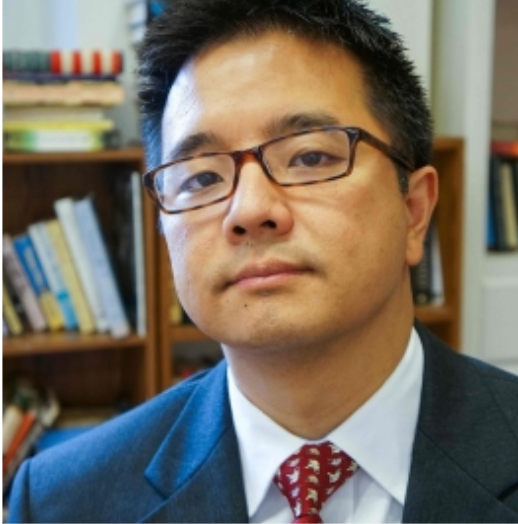2016 Cohort of HGHI Burke Global Health Fellows

Margaret Bourdeaux
MD, MPH
Biography:
Margaret Ellis Bourdeaux’s, MD, MPH , research and field work focuses on three areas: health systems and institutions in fragile and conflict affected states; health sector leadership capacity building in fragile and conflict affected states; and ways to use health systems as a vehicle to address ecological determinants of disease for impoverished people living proximate to fragile ecologies. She works closely with Harvard Medical School’s Global Public Policy and Social Change program and spearheads the Fragile State Health System working group. She earned her B.A. at Harvard University, her M.D. from Yale Medical School, completed her combined residency in Internal Medicine and Pediatrics at Brigham and Women’s Hospital in Boston, MA and completed her MPH at Harvard School of Public Health. She was one of the first graduates of the Global Women’s Fellowship at Brigham and Women’s Hospital. She has worked with the Office of the Secretary of Defense Policy to analyze the US Department of Defense’s global health projects and programs. She led a joint Harvard-NATO team of analysts to evaluate the impacts, challenges and opportunities international security forces have in protecting and rebuilding health systems in conflict affected states. She also serves as a policy advisor for PIVOT, an NGO working to address ecologic determinants of disease by strengthening and supporting the public health system of Madagascar.
Project Title: Preventing Health System Disruption from Armed Conflict in Fragile States: Is Aid Effective?
Burke Fellowship Research Abstract:
War kills people by destroying the institutions necessary to sustain civilian life and livelihoods. In particular, the destruction of health systems leaves countries unable to provide the most basic of health services, often leading to increased rates of death and disability for decades after the cessation of conflict. Recognizing this, most global health aid agencies and donors have embraced calls to funnel more aid to health systems threatened by armed conflict. However, little research exists looking at the effectiveness of this approach: does aid to health systems actually arrive? Does it allow health system to function through periods of crisis? Does it prevent health system collapse?
The purpose of this project is to thoroughly interrogate patterns of aid and financing of health systems in fragile and conflict-affected states over the past two decades. Leveraging new data sources, statistical methods and the network of relationships the Global Public Policy and Social Change program at Harvard Medical school has cultivated with leaders of health systems in fragile settings, I will examine how public, private and donor aid has fluctuated over time in nine fragile and conflict affected states. Then I will assess the longitudinal relationship between health system financing and changes in health system functioning, such as disruptions of health worker salary disbursements and health service provision. Interviews with key stakeholders including health system policy makers, donor agency personnel and health care providers will be used to corroborate and explore in more depth patterns identified in during quantitative analysis.

Lydia Pace
MD, MPH
Biography: Lydia Pace, MD, MPH, attended medical school at the University of California San Francisco, and completed residency in internal medicine/ primary care at Brigham and Women’s Hospital (BWH). Following residency she lived and worked in Rwanda from 2011-2014, serving as a District Clinical Advisor for Partners in Health and then Deputy Director of Women’s Health, while pursuing a research fellowship in Global Women’s Health at BWH. In 2014, Dr. Pace became faculty in the Division of Women’s Health at BWH and an Instructor in Medicine at Harvard Medical School. In this faculty position she has continued to work with colleagues in Rwanda on breast cancer research, including studying diagnostic delays experienced by women, developing and evaluating an early detection training intervention, evaluating trainings for district hospital clinicians in breast ultrasound, and, now, assessing outcomes and quality of breast cancer care. Domestically her work focuses on the clinical impact of women’s health policies in the United States including family planning and breast cancer screening.
Project Title: Quality and effectiveness of breast cancer care at a Rwandan cancer facility
Burke Fellowship Research Abstract:The incidence of breast cancer in low- and middle-income countries (LMICs) is rising, likely due to the population growth and aging, the decreased burden of infectious diseases, and shifts in breast cancer risk factors such as reproductive behaviors. Case fatality rates from breast cancer appear substantially higher in LMIC than in high-income countries, because of advanced-stage presentations and limited access to effective treatment. However, there are scarce data to guide implementation of effective, high-quality, and feasible breast cancer treatment programs in resource-limited settings. The goals of this project are to launch a rigorous assessment of breast cancer treatment and outcomes at the Butaro Cancer Center of Excellence (BCCOE), a rural public cancer center in Rwanda with a unique collaborative model of cancer care delivery. I will work with my research mentor Nancy Keating, and Rwandan colleagues, to build on our previous research at BCCOE and further support the center’s growth into a site for groundbreaking implementation research on cancer care delivery in LMIC.

Alexander Tsai
MD, PhD
Biography:
Dr. Alexander Tsai is a board-certified psychiatrist at the Massachusetts General Hospital; Associate Director for Trainee Development in the Chester M. Pierce, MD Division of Global Psychiatry; and a faculty affiliate at the Harvard Center for Population and Development Studies. Through his research, he seeks to understand how large-scale social forces such as violence, stigma, and food and water insecurity conspire to undermine health and mental health among the poor and excluded. His principal research platform is a population-based social network cohort in rural Uganda. In 2011, Dr. Tsai received the American Psychiatric Association’s Health Services Research Early Career Award, which is given annually to a single psychiatrist under the age of 40. Prior to his appointment at Mass General, he completed a Robert Wood Johnson Health and Society Scholars postdoctoral fellowship at Harvard University and his residency training in general adult psychiatry at the University of California at San Francisco. He currently serves as a pre-medical tutor for Harvard College undergraduates living in the Adams House residence.
Project Title: Water insecurity, child mental health, and HIV+ caregiver outcomes in rural Uganda: mixed-methods study
Burke Fellowship Research Abstract:
With increasing anthropogenic influences, global climate change has increased the frequency of precipitation & temperature extremes in East Africa. However, little to nothing is known about how water insecurity compromises health in vulnerable populations. Our preliminary qualitative findings from rural Uganda suggest that water insecurity is a critical household stressor that adversely affects household functioning as well as child and caregiver health and mental health. These data motivate my application to understand how water insecurity and family wellbeing are inextricably linked across generations, from children to caregivers. In collaboration with partners at the Mbarara University of Science and Technology in Mbarara, Uganda, I propose to use qualitative methods to develop and validate a parent-report measure of child mental health. In parallel, we will exploit a natural experiment to estimate the impact of a clean water intervention on adult mental health and household water insecurity. We will then leverage the infrastructure of an ongoing HIV cohort to test the extent to which child and caregiver mental health problems mediate the association between water insecurity, HIV treatment adherence, and engagement in HIV care. Until global climate change can be slowed or reversed, there will remain an urgent need for interventions to buffer vulnerable populations against its adverse effects. The data obtained through this study will inform the development of a parenting intervention aimed at Ugandan families struggling with food and water insecurity to help improve family functioning, family well being, and child development.


